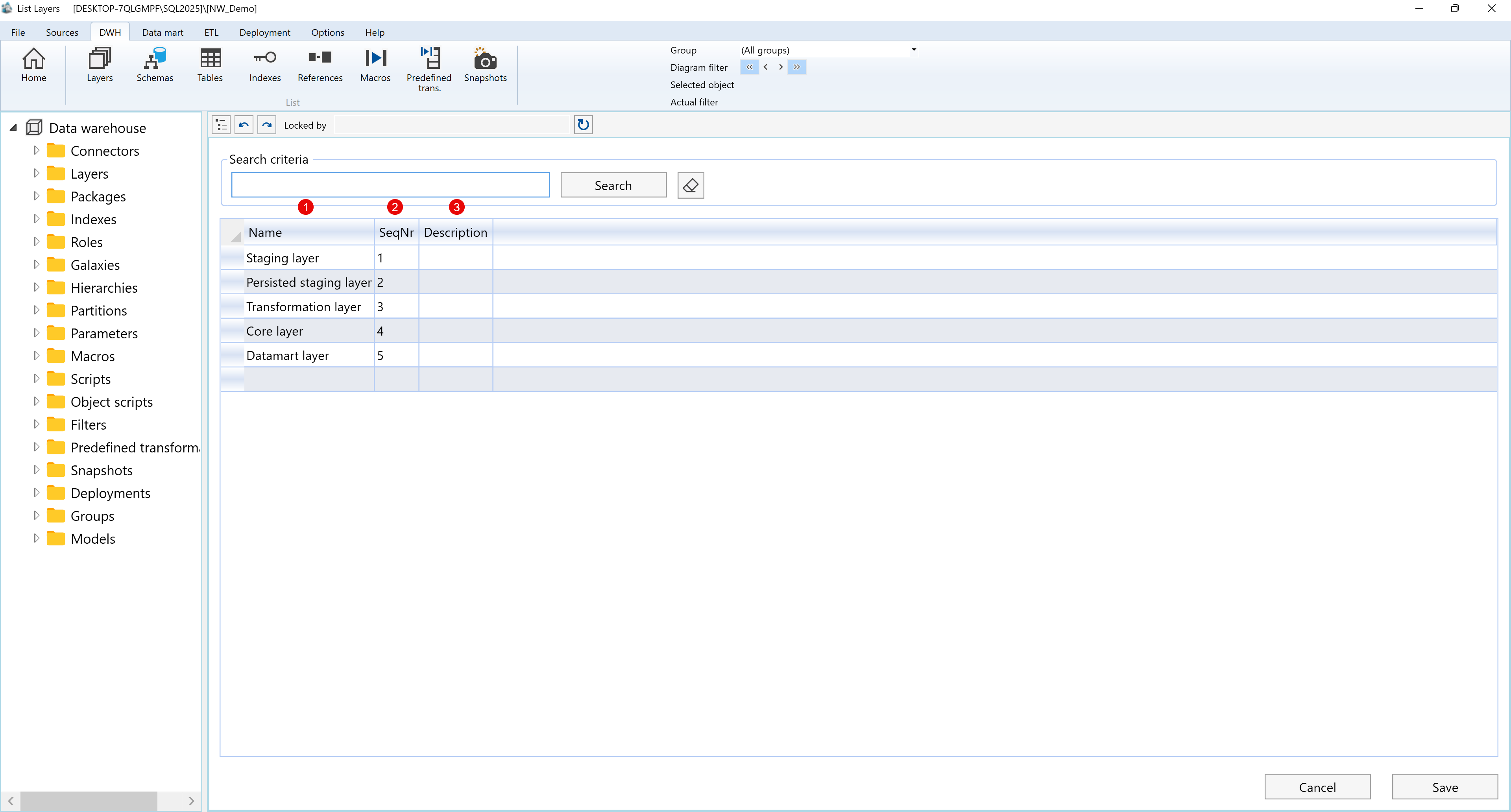Layers
The Layers feature in AnalyticsCreator defines the logical and sequential structure in which metadata objects are grouped and generated. Each object in a project is assigned to a Layer, which determines its build order and visibility during solution generation.
Function
Layers represent vertical slices in a project's architecture, such as Source, Staging, Persisted Staging, Transformation, Data Warehouse - Core , or Datamart. One Layer can have one or more than one schema associated into it. They are used to control:
- Object assignment and isolation
- Deployment sequencing across environments
- Selective generation of solution parts
- Build-time logic and dependency resolution
Layer configuration impacts how AnalyticsCreator generates the SQL database schema, Azure Data Factory pipelines, and semantic models.
Access
Layers are accessible from the DWH. A dedicated Layers panel displays all defined Layers, their order, and assignment status.
Properties
| ID | Property | Description |
|---|---|---|
| 1 | Name | The Description of the purpose of the the Layer |
| 2 | SeqNr | Defines the Sequence Number of the layer and it will control the display order into the lineage |
| 3 | Description | A field to provide a detailed description of the Layer |
Screen Overview
The image below shows the List Layers interface with columns labeled for easy identification

Behavior
- Layers are executed in the defined top-down order
- Disabling a Layer excludes its objects from generation
- Each object must belong to one and only one Layer
- Layers influence SQL build context and pipeline generation
Usage Context
Layers are typically aligned with logical data architecture phases. Common usage includes separating ingestion, transformation, modeling, and reporting responsibilities.
Notes
- Layer configurations are stored within the project metadata
- Changes to Layer order or status require regeneration of the solution
- Layer visibility and behavior apply across all deployment targets